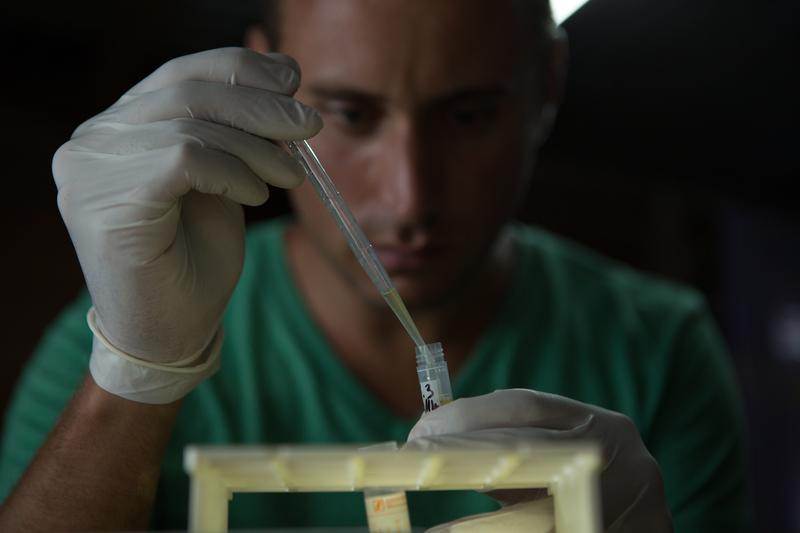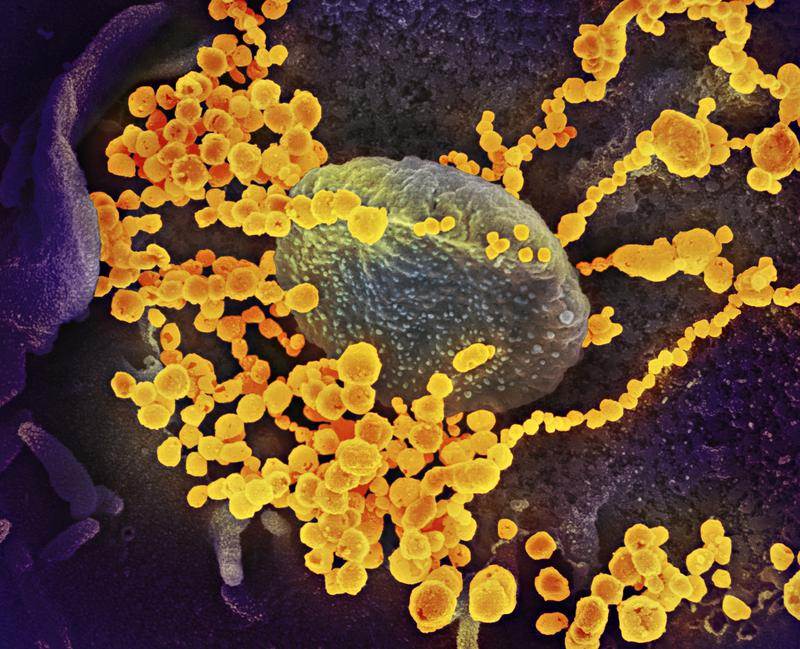When you hear the term “Batcave,” you probably think of the Batmobile speeding away as Bruce Wayne responds to a call from the city of Gotham, Bat Symbol ablaze in the night sky ahead. National Geographic is about to change that imagery for you with Virus Hunters, a new documentary special premiering November 1st at 9/8c. This special, produced in collaboration with ABC News’ Lincoln Square Productions, takes viewers to places near and far to look at the amazing work scientists are doing to try to prevent viruses like COVID-19 in the future.
National Geographic Fellow Dr. Christopher Golden and ABC News Correspondent James Longman are your guides for this trip around the world amidst a global pandemic. Throughout this hour-long special, viewers will get to see places both exotic and familiar as they partner with experts in the scientific community to learn more about viruses in wild animals that pose a potential risk to humans and the variety of ways they could jump species. You’ll see a lot of examples that make it clear that the next major outbreak could start anywhere, including right where you live.
The adventure begins in Monrovia, Liberia, where an ebola outbreak years ago was traced to bushmeat markets. These same bushmeat markets include the illegal hunting and selling of primates, which were the source of the HIV/AIDS outbreak. Another deadly international outbreak is explored in Istanbul, Turkey, where MERS jumped from bats to camels to humans, representing another path a virus can take that doesn’t involve humans eating bats directly. Another bat cave is explored here at a major intersection between Europe, Asia and Africa.
Back in the U.S., our hosts visit Eau Claire, Wisconsin to meet with teams who test hunted deer for Chronic Wasting Disease (CWD), which can jump to humans and deteriorates soft tissues in the brain and spinal column. The last destination is Ames, Iowa, where a laboratory administers nasal swabs to pigs looking for new and known viruses. The U.S. was the source of the H1N1 Swine Flu in 2009. To that end, the special makes it clear that calling COVID-19 by any name that sources it to China is ignorant because this same strand could’ve spread from bats in many other places in the world.
As a viewer who gets queasy easily, there were several moments that I found hard to watch. If you had trouble getting through high school biology with similar afflictions, know that there will be moments where you need to look away. One comes at a bushmeat market in the Liberia section and the other comes while examining deer heads in Wisconsin when the hosts get a hands-on tutorial. Outside of these moments, Virus Hunters is an important documentary and one with no objectionable content.
If everyone was required to watch Virus Hunters, it would make for a safer future. There are lessons to be found here, and presumably in the November single-topic issue of National Geographic magazine on the same topic, that could potentially save lives. This special is touchingly dedicated to those who have lost their lives during this current pandemic.
Virus Hunters premiers Sunday, November 1st at 9/8c on National Geographic.



